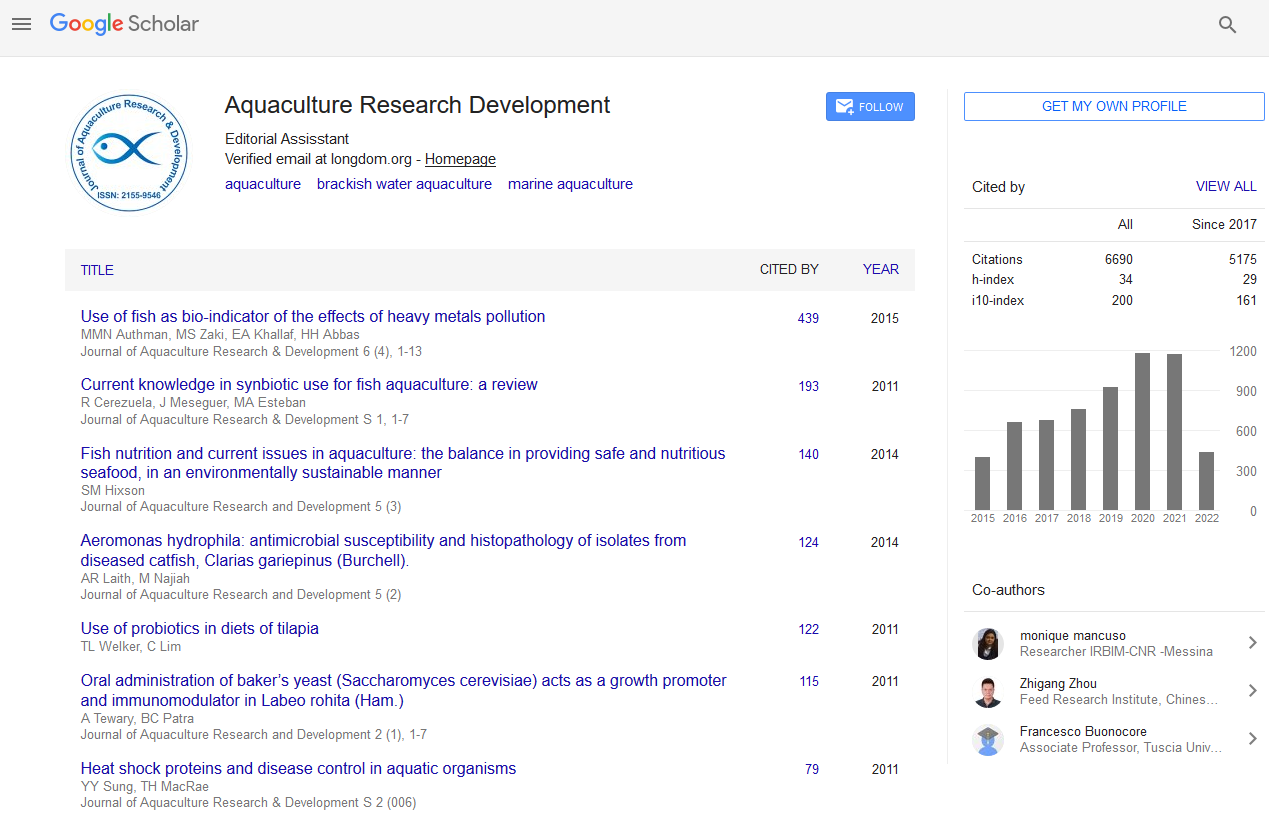PMC/PubMed Indexed Articles
Indexed In
- Online Access to Research in the Environment (OARE)
- Open J Gate
- Genamics JournalSeek
- JournalTOCs
- Scimago
- Ulrich's Periodicals Directory
- Access to Global Online Research in Agriculture (AGORA)
- Electronic Journals Library
- Centre for Agriculture and Biosciences International (CABI)
- RefSeek
- Directory of Research Journal Indexing (DRJI)
- Hamdard University
- EBSCO A-Z
- OCLC- WorldCat
- Scholarsteer
- SWB online catalog
- Virtual Library of Biology (vifabio)
- Publons
- MIAR
- University Grants Commission
- Euro Pub
- Google Scholar
Useful Links
Share This Page
Journal Flyer

Open Access Journals
- Agri and Aquaculture
- Biochemistry
- Bioinformatics & Systems Biology
- Business & Management
- Chemistry
- Clinical Sciences
- Engineering
- Food & Nutrition
- General Science
- Genetics & Molecular Biology
- Immunology & Microbiology
- Medical Sciences
- Neuroscience & Psychology
- Nursing & Health Care
- Pharmaceutical Sciences
Freshwater aquaculture in New Zealand-eels, whitebait and carp
International Conference on Aquaculture & Fisheries
July 20-22, 2015 Brisbane, Australia
Paul Decker
Posters-Accepted Abstracts: J Aquac Res Development
Abstract:
The state of freshwater aquaculture in New Zealand primarily with eels, whitebait and 2 species of carp is summarised and it?s potential to fulfill the Government?s goal of establishing a $1 billion aquaculture industry by 2025 is reviewed. The pros and cons of the range of species with commercial potential are presented and the lack of progress in fish farm development is questioned. The main impediment is related to governmental procrastination in making necessary changes to legislation that will allow or encourage the development of a land based aquaculture industry; the industry that Government claims to support. The complex raft of permissions and consents required for holding, transporting, processing and selling fish and all those required for using land, establishing farm infrastructure and taking and discharging water are discussed along with their costs. The difficulties of coping with natural problems such as weather, climate, disease in a monoculture, predation, siltation and maintaining water quality in rural areas are highlighted. Also, commercial aspects of establishing sufficient stock, meeting predictable demand, marketing to establish a viable commercial demand and financing the lead time-several yearsto build stock numbers are all addressed along with the onerous task of meeting the Government?s monitoring and reporting requirements. The Crown?s responsibilities for both environmental protection and preserving the rights of public access and use are discussed in relation to the current restrictive licensing tenure of all land based fish farms and the alternatives required to promote aquaculture are considered.
Biography :
Paul Decker has broad experience in all aspects of aquaculture. Initially recruited to New Zealand in 1983 as Manager of NZ?s largest freshwater fish farm, he has subsequently owned and operated oyster farms, a freshwater fish farm, commercial fishing vessels and facilities for fish breeding, culture and quarantine. His environmental consultancy company specialises in aquatic ecosystems and population monitoring and oversees fish transfers and the related Environment Impact Assessments (EIAs). He is experienced in all aspects of compliance. In 1989 he established Mahurangi Technical Institute, NZ?s largest aquaculture and maritime training facility where he maintains a ?hands-on? involvement in fish breeding and culturing.


